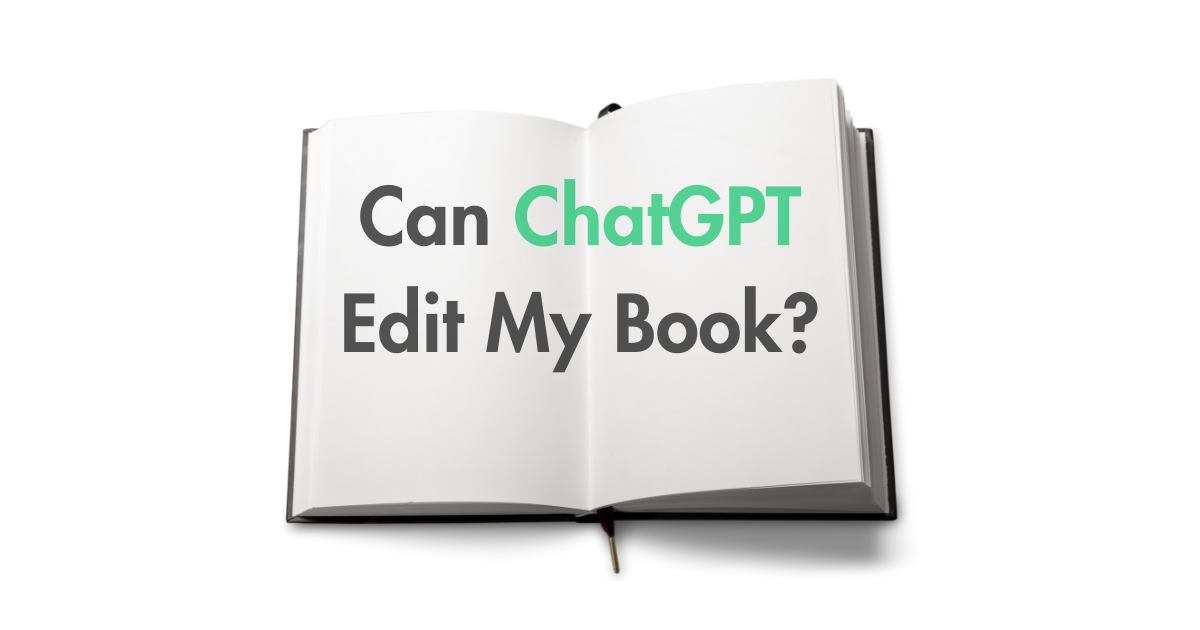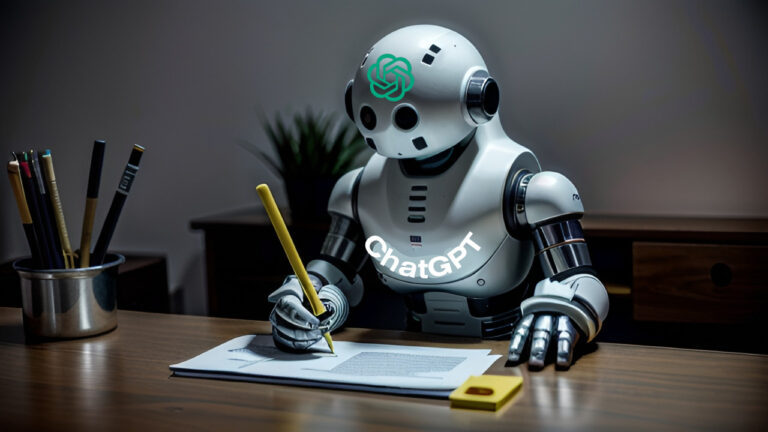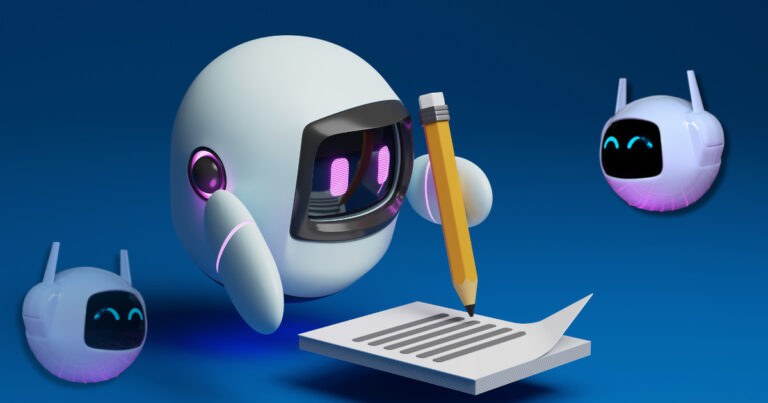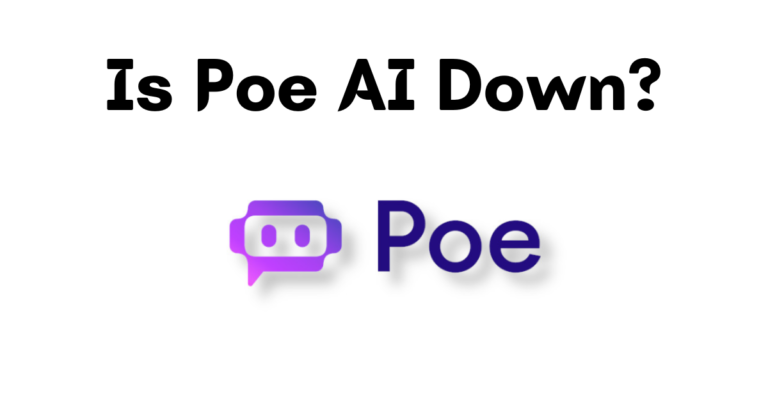

Like you, many others have the same question Can ChatGPT Edit My Book? below im going to solve this with a proper talk.
In the ever-evolving landscape of artificial intelligence, one question that arises for authors and writers is whether ChatGPT can effectively edit their books.
With the rise of advanced language models, such as OpenAI’s GPT-3, many have turned to these AI-powered tools for assistance in various writing tasks.
In this article, we will explore the capabilities of ChatGPT in book editing, its strengths, and limitations, and how it can potentially revolutionize the editing process.
Contents
- 1 Can ChatGPT Edit My Book?
- 2 ChatGPT’s Proofreading Abilities
- 3 Power of ChatGPT in Sentence Structure and Clarity
- 4 Filling in Gaps and Enhancing Book Content
- 5 Collaborating with ChatGPT in Book Description Writing
- 6 The Limitations of ChatGPT in Book Editing
- 7 Incorporating ChatGPT into the Book Editing Process
- 8 Frequently Asked Questions (FAQs)
Can ChatGPT Edit My Book?
ChatGPT can assist with basic grammar and structure checks in books. However, for in-depth editing and nuanced feedback, it’s best to consult a professional editor.
ChatGPT’s Proofreading Abilities
Proofreading is a critical step in the book publishing process, ensuring that the final manuscript is free from errors, inconsistencies, and typos.
Traditionally, this task has been entrusted to human proofreaders, but the emergence of AI-powered editors like ChatGPT has raised the question of whether machines can perform this task with equal or even greater efficiency.
ChatGPT, with its vast knowledge base and language processing capabilities, can indeed be a valuable assistant in proofreading.
It can help identify grammatical errors, and punctuation issues, and even suggest improvements in sentence structure and clarity.
However, it’s important to note that ChatGPT should be utilized as a tool in conjunction with human editors, as it still has limitations that require human judgment and expertise.
Power of ChatGPT in Sentence Structure and Clarity
One area where ChatGPT shines is in its ability to enhance sentence structure and improve overall clarity. It can suggest rephrasing sentences, eliminating repetitive phrases, and even providing alternative word choices to make the text more engaging and coherent.
By utilizing ChatGPT’s suggestions, authors can refine their writing style and ensure their message is effectively conveyed to readers.
ChatGPT can also help identify inconsistencies in writing style, ensuring that the tone remains consistent throughout the book.
It can flag instances where the author’s voice may have shifted or where there are discrepancies in punctuation or formatting. By addressing these issues, authors can create a more polished and professional final product.
Filling in Gaps and Enhancing Book Content
In addition to proofreading and sentence structure improvements, ChatGPT can assist authors in filling in gaps within their book content.
It can suggest additional information or provide insights that the author may have overlooked during the writing process. This capability can be particularly valuable in non-fiction books, where accuracy and completeness of information are paramount.
By leveraging ChatGPT’s extensive knowledge base, authors can ensure that their book is comprehensive and thoroughly covers the subject matter.
However, it is important for authors to exercise caution and verify the accuracy of the suggestions provided by ChatGPT, as AI models are not infallible and can sometimes generate incorrect or misleading information.
Collaborating with ChatGPT in Book Description Writing
Crafting an enticing book description is crucial for capturing potential readers’ attention and driving sales. ChatGPT can lend a hand in this aspect as well.
By providing a brief overview of the book’s content, its unique selling points, and engaging language, ChatGPT can generate an initial draft of the book description. Authors can then refine and personalize it to suit their style and target audience.
The Limitations of ChatGPT in Book Editing
While ChatGPT offers valuable assistance in book editing, it is important to recognize its limitations. AI language models are not capable of fully replacing human editors and proofreaders.
ChatGPT may occasionally miss errors or suggest changes that are not suitable for the author’s intended style, voice, or target audience. It is crucial for authors to exercise their judgment and not solely rely on AI-generated suggestions.
Additionally, ChatGPT lacks contextual understanding and may misinterpret the author’s intentions. It is essential to review and verify any changes made by ChatGPT to ensure they align with the author’s vision for the book.
Authors should also be aware that ChatGPT’s suggestions are based on existing text data and may not always provide original or creative ideas.
Incorporating ChatGPT into the Book Editing Process
To effectively utilize ChatGPT in book editing, authors should adopt a collaborative approach. Here are some steps to integrate ChatGPT into the editing process:
- Proofread the manuscript independently or with the help of human editors before utilizing ChatGPT.
- Use ChatGPT to identify potential errors, inconsistencies, and areas for improvement.
- Review and verify ChatGPT’s suggestions, making necessary adjustments to align with the author’s style and voice.
- Seek feedback from human editors and beta readers to ensure the final product meets the desired quality standards.
- Perform a final manual review to address any remaining issues and refine the manuscript.
By combining the strengths of ChatGPT with human expertise, authors can maximize the efficiency and effectiveness of the book editing process.
Frequently Asked Questions (FAQs)
Q1: Can ChatGPT replace human proofreaders and editors entirely?
A1: No, ChatGPT should be viewed as a valuable tool that complements human proofreaders and editors. Human judgment, creativity, and contextual understanding are essential in the editing process.
Q2: How accurate are ChatGPT’s suggestions?
A2: ChatGPT’s suggestions should be treated as helpful prompts rather than definitive corrections. Authors should review and validate the suggestions before incorporating them into their manuscript.
Q3: Can ChatGPT provide feedback on the overall flow and structure of the book?
A3: While ChatGPT can offer suggestions for sentence structure and clarity, it is not equipped to provide comprehensive feedback on the overall flow and structure of the book. Human editors and beta readers are better suited for this task.
Q4: Are there any privacy concerns when using ChatGPT for book editing?
A4: When utilizing ChatGPT, authors should be cautious about sharing sensitive or confidential information. It is advisable to review the terms and conditions of the platform used and ensure the protection of intellectual property.
ChatGPT can be a valuable tool for authors seeking assistance in editing their books. It can help identify errors, enhance sentence structure and clarity, fill in information gaps, and even aid in crafting engaging book descriptions.
However, authors should remember that ChatGPT is not a substitute for human proofreaders and editors.
By leveraging the strengths of both AI and human expertise, authors can achieve a refined and polished final manuscript that resonates with readers.






